
Kevin Kalinsky, MD, MS, of Glenn Family Breast Center, gives insight into the real-world data supporting the use of sacituzumab govitecan-hziy in the treatment of triple-negative breast cancer (TNBC).

Kevin Kalinsky, MD, MS, of Glenn Family Breast Center, gives insight into the real-world data supporting the use of sacituzumab govitecan-hziy in the treatment of triple-negative breast cancer (TNBC).

Max Parmar, professor of medical statistics and epidemiology at University College London, unpacks what clinicians and patients can gain from the application of multiarm multistage (MAMS) trials.
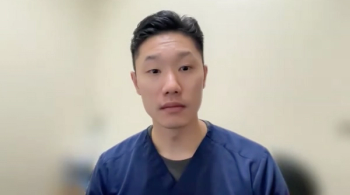
Atopic dermatitis, psoriasis, and hidradenitis suppurativa (HS) can present differently in diverse patients, potentially leading to delayed diagnosis and therefore delayed treatment, explained James Song, MD, director of clinical research and associate chief medical officer at Frontier Dermatology.

The FDA approval of topical ruxolitinib 1.5% cream changed the game for vitiligo treatment in both adult and pediatric patients, said Raj Chovatiya, MD, PhD, assistant professor of dermatology at Northwestern University's Feinberg School of Medicine.
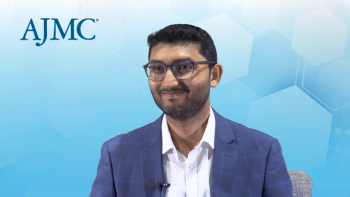
Prerakkumar Parikh, PharmD, of Megallen Rx Management/Prime Therapeutics, detailed the impact of formulary placement of biosimilars on cost burden along with how stakeholders can work with pharmacy benefit managers to promote biosimilar use.
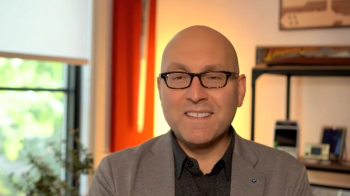
Peter A. Lio, MD, clinical assistant professor of dermatology and pediatrics at Northwestern University's Feinberg School of Medicine, addresses how dermatologists need to focus on patient needs when determining the best use of new biologics in moderate to severe atopic dermatitis.
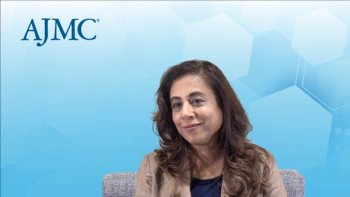
Saira Jan, PharmD, MS, of Horizon Blue Cross Blue Shield of New Jersey, discussed the primary findings of their collaborative pilot program with Rutgers Cancer Institute of New Jersey and RWJ Barnabas Health, focusing on patient and provider experiences.

Janus kinase (JAK) inhibitors are not only efficacious in terms of skin disease improvement, but also in terms of itch management, explained Mona Shahriari, MD, assistant clinical professor of dermatology at Yale University and associate director of clinical trials at Central Connecticut Dermatology.
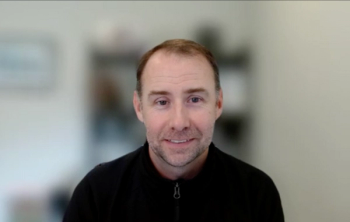
Brian Mullen, PhD, head of innovation and product at The Clinic by Cleveland Clinic, discusses the implementation of digital health tools and strategies made by The Clinic and what these improvements mean for its patients.

Chelsee Jensen, PharmD, BCPS, of Mayo Clinic, commented on the recent FDA biosimilar approvals and what they mean for the industry's future, as well as how to ensure biosimilars are accessible to all patients.

The landscape for biologics to treat patients with psoriasis looks excellent, said April Armstrong, MD, MPH, professor and chief of dermatology at UCLA.

Eric Donnenfeld, MD, from Ophthalmic Consultants of Long Island, discusses the importance of the Xdemvy FDA approval in treating patients with Demodex blepharitis.

Kristen Whelchel, PharmD, CSP, of Vanderbilt University Medical Center, details what services medically integrated dispensing (MID) specialty pharmacies provide.
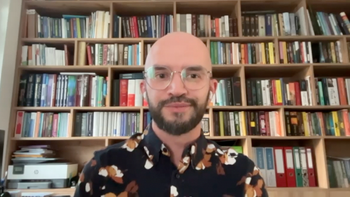
Pawel Sobczuk, MD, PhD, of the Maria Sklodowska-Curie National Research Institute of Oncology in Warsaw, Poland, previews the upcoming ESMO Congress 2023 in Madrid, Spain.

Jeff McIntyre, MA, of the Global Liver Institute, discussed how the delayed diagnosis of nonalcoholic steatohepatitis (NASH) affects patients and how health care and managed care professionals can help expedite diagnosis and treatment.

Kimberly Westrich, MA, of Cencora, explains how US payers' views and uses of value assessment tools have evolved.

To ensure patients are getting timely access to their treatments, there needs to be better collaboration between payers and providers, said Christine Pfaff, RPh, senior regional director of operations, American Oncology Network.
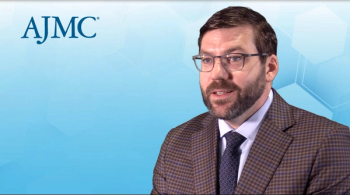
Ben Urick, PharmD, PhD, of Prime Therapeutics, compares the value of medically integrated specialty pharmacies with that of mail order pharmacies.
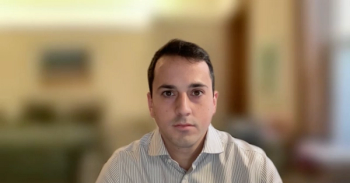
Joseph Chervenak, MD, MBA, obstetrician and gynecologist, Montefiore Institute for Reproductive Medicine and Health, breaks down the benefits and challenges associated with implementing large language models such as ChatGPT into reproductive medicine and fertility care.

Kristine Slam, MD, FACP, Central Ohio Surgical Associates, addresses the importance of involving patients in decisions regarding their goals for treatment, emphasizing that this involvement is critical to uncover what they value, as well as their short- and long-term goals for treatment.

Peter A. Lio, MD, clinical assistant professor of dermatology and pediatrics at Northwestern University Feinberg School of Medicine, gives a preview of his session on mild to moderate atopic dermatitis (AD) in skin of color.

Biosimilars are becoming more common as more launch on the market in the United States, but patient and provider education can help speed uptake of these products, explained Bincy Abraham, MD, Houston Methodist – Weill Cornell.

Alma Habib, MD, The Ohio State University Comprehensive Cancer Center, talks about the fact that disparities are able to be recognized in leukemia/lymphoma care, but the questions of how to address these disparities remain.

Older patients often face financial challenges on fixed incomes with different payer systems like Medicare, Sarah Wall, MD, The Ohio State University Comprehensive Cancer Center, says. Accessing treatment centers far away is difficult due to support system disruptions, leading to increased stress and financial strain.
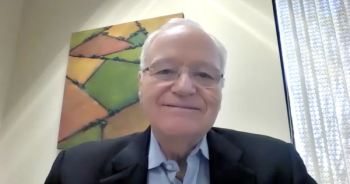
David Adamson, MD, FRCSC, FACOG, FACS, reproductive endocrinologist, surgeon, founder and CEO of ARC Fertility, and past president of The American Society for Reproductive Medicine, discusses the importance of professional guidelines in reproductive medicine.
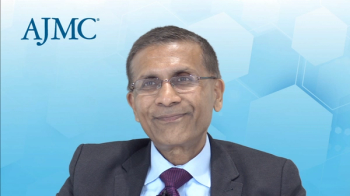
Positive results from STEP-HFpEF indicate that semaglutide can improve quality of life and functional capacity in patients with obesity-related heart failure with preserved ejection fraction (HFpEF), but large outcomes trials are needed to confirm this, said Javed Butler, MD, MPH, MBA.

Director Takiyah Durham, MBA, and Margaret Larkins-Pettigrew, MD, share how the program is improving maternal and infant care in Pittsburgh, PA, at Highmark Health.

Fabric Health is transforming laundry time into an opportunity for community well-being, engaging families in laundromats to address health needs and connecting them with health care experts and needed social services. Adaptable and problem-solving oriented, the social-impact startup helps to bridge pandemic-exacerbated disparities by meeting people where they are, fostering health equity.

Jennifer Vaughn, MD, discusses how value-based care in hematology should consider cost and financial toxicity, as well as valuable patient experience.

Jennifer Mathieu, MA, senior vice president of professional and government affairs of the Academy of Managed Care Pharmacy (AMCP), described what is in store for attendees during next week's AMCP Nexus meeting.

259 Prospect Plains Rd, Bldg H
Cranbury, NJ 08512
© 2025 MJH Life Sciences®
All rights reserved.
